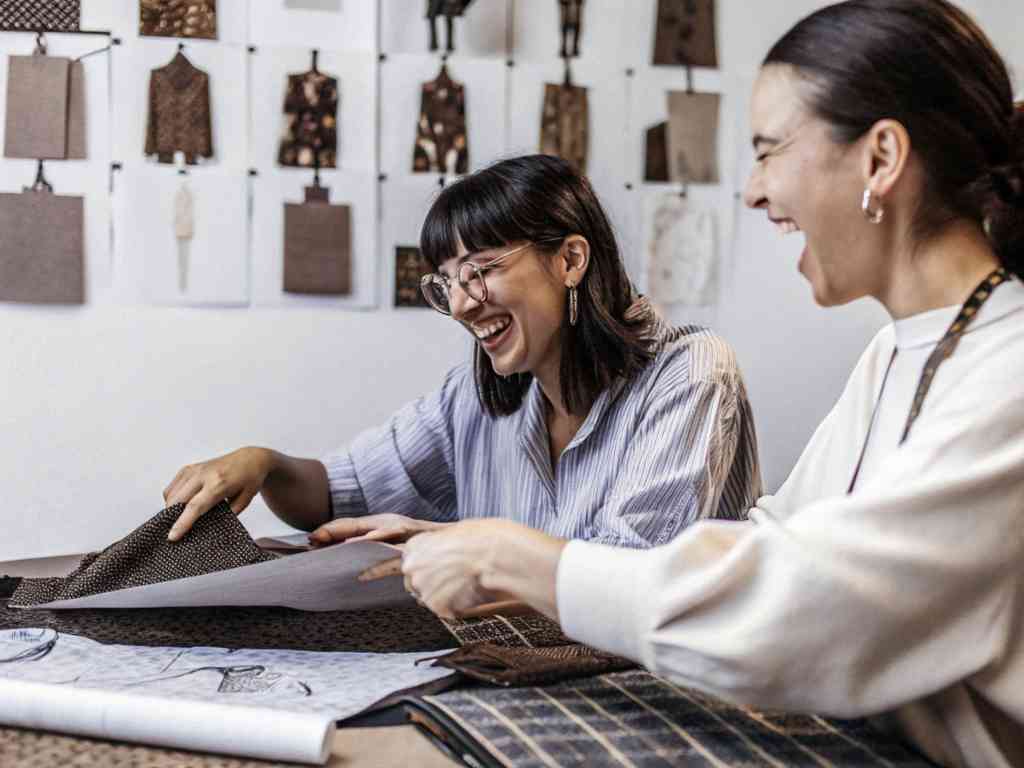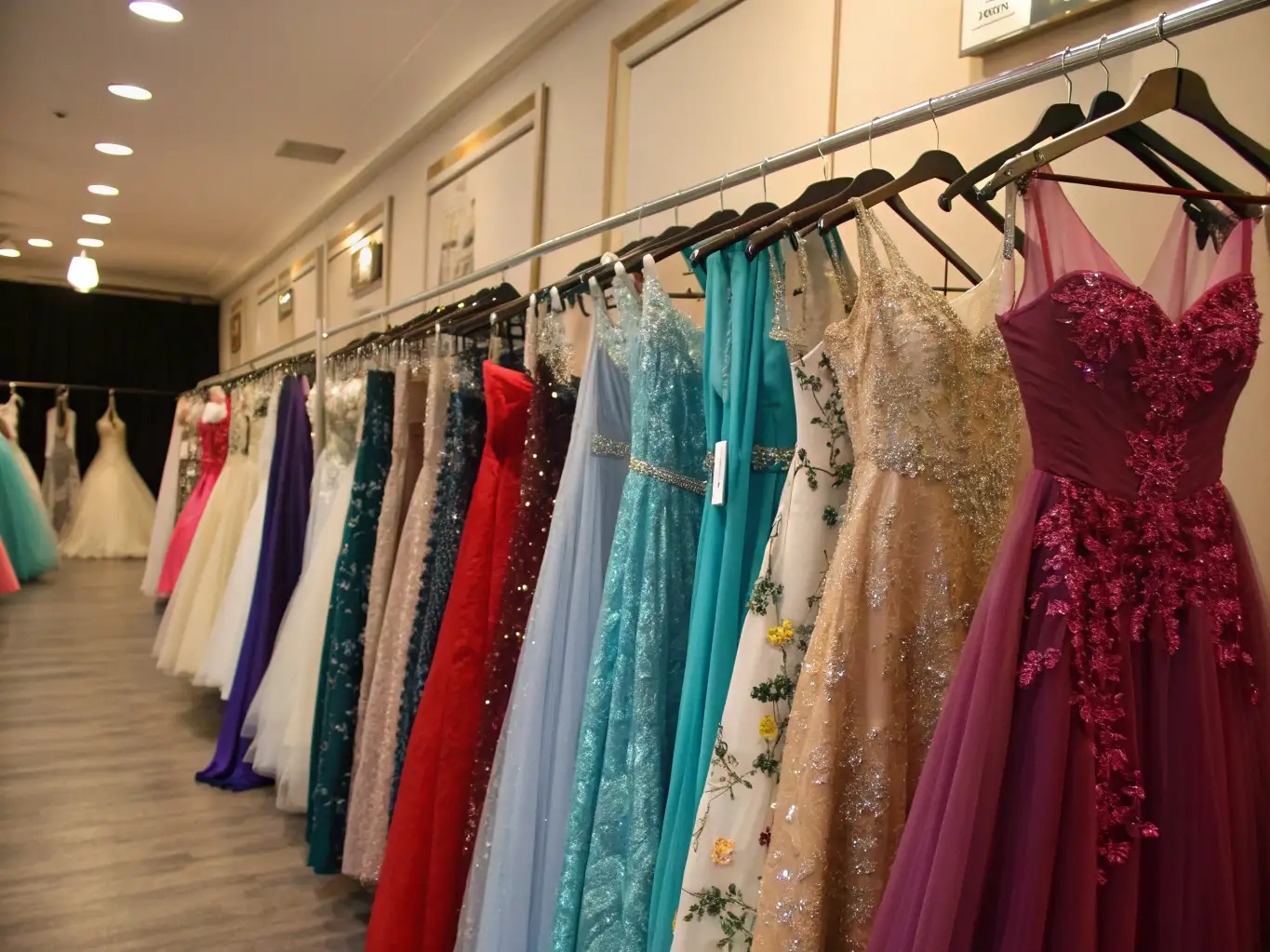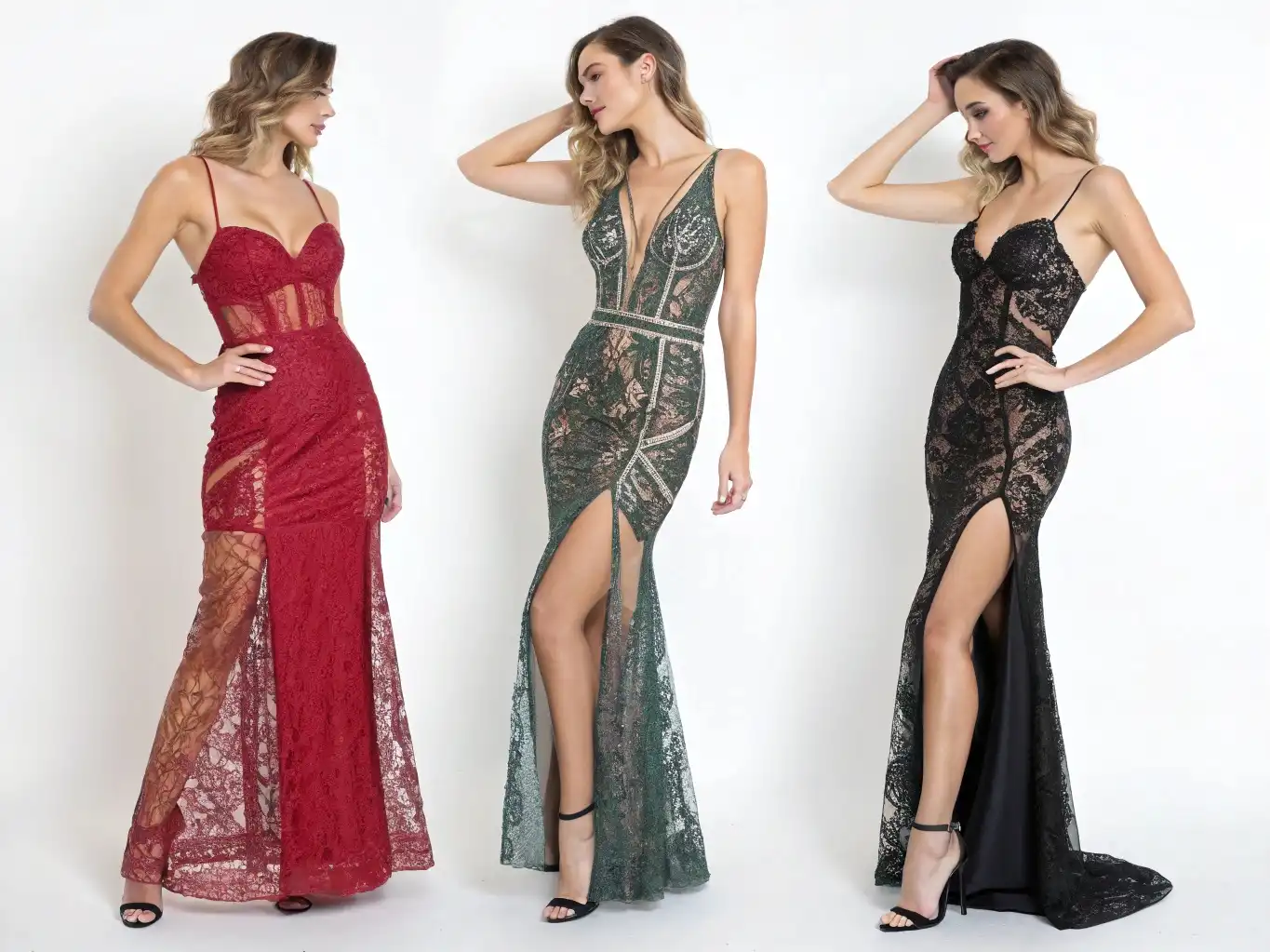You have a vision for the perfect dress, but browsing endless racks of standard designs leaves you frustrated. Ready-to-wear dresses rarely fit perfectly or match your creative ideas. Imagine having a dress designed exactly as you envisioned—perfectly tailored, uniquely stylish, and made exclusively for you or your brand.
“Dress Custom” refers to dresses created specifically to a client’s exact measurements, style preferences, and unique specifications. Unlike ready-to-wear (mass-produced) or made-to-measure (altered standard designs), custom dresses1 offer complete personalization—from initial design concepts and fabric choice to specific details, delivering a unique garment tailored precisely for individuals, boutiques, or brands.
A client of mine, Sara, couldn’t find any dresses suitable for her boutique’s distinctive style. By choosing custom solutions, she gained complete creative control and elevated her brand’s reputation significantly. Let’s explore why you might consider going custom, too.
How Do You Get a Dress Custom Made From Scratch?
Creating a custom dress from scratch involves clearly defined stages. Understanding these steps simplifies the process, ensuring your final product matches your expectations exactly.
Getting a custom dress made involves four key steps: initial consultation to discuss your vision, detailed design and sketches, creation of a prototype or sample dress, and final production after approval. Essential details include fabric selection, accurate measurements2, embellishments, and branding elements like logos.
Detailed Step-by-Step Process
1. Consultation
- Define the dress style, event type, and overall vision.
- Clarify any branding or custom features.
2. Design
- Designers create sketches based on your ideas.
- Select fabric types (silk, chiffon, polyester) and embellishments (sequins, embroidery).
3. Sample
- Prototype made for fitting adjustments.
- Final tweaks for fit and design accuracy.
4. Production
- Final dress produced with quality assurance checks.
- Delivered within agreed timelines.
Providing clear instructions and references during these steps ensures your custom dress accurately reflects your intentions.
Which Types of Dresses Can Be Custom Made?
Many assume custom dresses are limited to formal events or weddings. However, custom solutions are incredibly versatile, serving diverse needs from daily wear to brand-specific collections.
Commonly customized dress types include evening gowns, prom dresses, casual wear, bridal gowns, uniforms, and even corporate attire. The flexibility in custom dress design means dresses can be tailored for various events, brand styles, or seasonal collections, addressing individual tastes and business branding needs effectively.
Custom Dress Types for Different Occasions
| Occasion/Event | Popular Custom Dress Types |
|---|---|
| Formal | Evening gowns, prom dresses, cocktail dresses |
| Casual | Daily wear, casual dresses, summer dresses |
| Weddings | Bridal gowns, bridesmaid dresses |
| Corporate | Uniform dresses, corporate event attire |
| Seasonal Collections | Holiday dresses, resort wear |
Brands particularly benefit from custom-made dresses, allowing distinctive designs that reflect brand identity or align with marketing strategies and seasonal trends.
Is It Worth Getting a Dress Custom Made Instead of Buying Off-the-Rack?
Deciding between custom-made and ready-to-wear dresses involves evaluating specific benefits and drawbacks. Custom dresses offer unique advantages that standard retail often cannot.
Custom-made dresses provide superior fit, creative flexibility, and exclusivity compared to off-the-rack options, though typically at a higher initial cost. They’re ideal for clients prioritizing precise fitting, distinctive branding, and personalized style, making the extra investment worthwhile for those seeking long-term quality and uniqueness.
Pros and Cons of Custom vs. Store-Bought Dresses
| Factor | Custom Dress Advantages | Store-Bought Dress Advantages |
|---|---|---|
| Fit Quality | Precise, personalized | Quick availability, no wait time |
| Design Options | Unlimited creativity | Limited by seasonal trends |
| Branding Potential | Ideal for unique brand identity | Difficult to differentiate from competitors |
| Cost | Higher upfront, better quality | Lower upfront, variable quality |
Client Success Stories and Brand Differentiation
One client, a boutique owner named Lily, significantly increased customer loyalty by introducing custom-made dresses with unique designs. Customers valued exclusivity, boosting her boutique’s reputation and profit margins compared to competitors selling mass-produced styles.
Do You Need Professional Measurements for a Custom Dress?
Accurate measurements ensure a custom dress fits flawlessly without costly alterations. While professional measuring is ideal, precise at-home measurements can also work effectively.
Custom dresses typically require essential measurements like bust, waist, hips, dress length, shoulder width, and sleeve length. Although professional measurements offer the highest accuracy, detailed guides and virtual consultations provided by reputable suppliers make accurate home measurements achievable, minimizing post-production alterations.
Essential Measurements and Tips for Accuracy
Key measurements:
- Bust: Widest chest area.
- Waist: Narrowest torso point.
- Hips: Widest area below the waist.
- Length: Shoulder or waist-to-floor measurement.
- Sleeve & Shoulder Width: Needed for sleeves or shoulder-specific styles.
At-Home Measurement Tips
- Use a soft measuring tape, not rigid.
- Have someone help you measure.
- Stand naturally straight, without sucking in or over-stretching.
- Measure twice for accuracy and record clearly.
Accuracy at this stage ensures a dress that fits beautifully upon arrival, saving costs and time on adjustments.
How Much Does a Custom Dress Usually Cost?
Cost transparency is essential when investing in custom dresses. Understanding pricing factors helps you budget effectively and compare custom to store-bought dresses realistically.
A custom-made dress typically costs between $150-$800 or more, influenced by design complexity, fabric type, labor intensity, embellishments, and order quantity. Single dresses tend to cost more per unit compared to bulk orders, which benefit from economies of scale, making custom solutions ideal for brands or boutiques.
Breakdown of Custom Dress Cost Factors
| Cost Component | Percentage of Overall Cost |
|---|---|
| Fabric Quality | 30%-40% |
| Labor & Craftsmanship | 40%-50% |
| Design Complexity | 10%-20% |
| Embellishments | 5%-15% |
For brands ordering larger quantities, bulk custom dresses become highly cost-effective compared to buying individually priced, high-end retail dresses.
Are There Low Minimum Order Quantities (MOQs) for Custom Dresses?
Low MOQs are critical for small businesses or designers testing new designs without heavy upfront investments. Understanding MOQ helps you strategize effectively.
Minimum Order Quantity (MOQ)3 is the minimum number of items a manufacturer accepts per order. Suppliers like JF Apparel offer low MOQs, typically around 100-300 pieces per style, making it affordable for startups, boutiques, and independent designers to test new designs, manage inventory efficiently, and minimize financial risk.
Benefits of Low MOQ for Different Buyers
| MOQ Level | Ideal Users | Key Benefits |
|---|---|---|
| Low (100-300) | Small boutiques, startups, individual designers | Less upfront cost, exclusive designs, market testing |
| High (500+) | Established brands, larger retailers | Lower per-unit cost, extensive inventories |
JF Apparel’s Flexible MOQ Solutions
At JF Apparel, we specifically support small businesses by offering low MOQ solutions. Our service includes:
- Free Design Consultations: Expert advice without extra cost.
- Sample First Policy: Verify quality before bulk production.
- Scalable Production: Easily increase order quantities as your business grows.
Conclusion
Choosing a custom-made dress provides unmatched flexibility, fit, and unique styling opportunities compared to off-the-rack alternatives. Whether you’re an individual looking for a personalized dress, a boutique wanting exclusive offerings, or a brand seeking differentiation, custom dresses offer substantial value. Partnering with reliable manufacturers like JF Apparel guarantees excellent quality, precise fits, and satisfied clients, making custom dresses a worthwhile investment for lasting impact.
-
Explore the unique advantages of custom dresses, including fit, creativity, and exclusivity, to see if they’re right for you. ↩
-
Learn the best practices for taking measurements to ensure your custom dress fits perfectly, saving time and money on alterations. ↩
-
Understanding MOQ can help small businesses manage costs and inventory effectively, making it crucial for startups and boutiques. ↩






